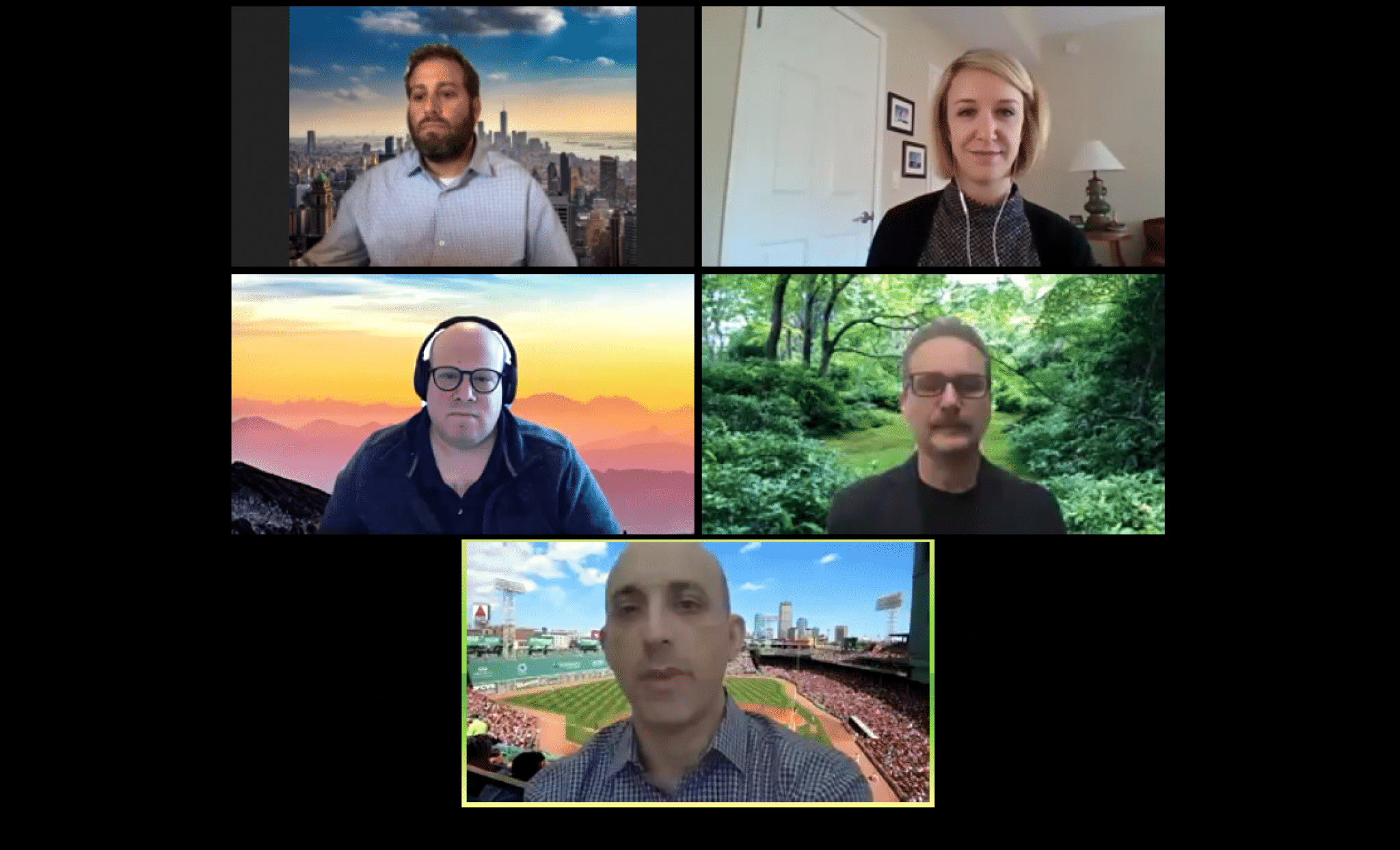 From left: ADL Center on Extremism Vice President Oren Segal, ADL National Policy Counsel Lauren Krapf, ADL Center for Technology and Society Vice President Dave Sifry, Zoom Chief Product Officer Oded Gal, ADL CEO Jonathan Greenblatt.
From left: ADL Center on Extremism Vice President Oren Segal, ADL National Policy Counsel Lauren Krapf, ADL Center for Technology and Society Vice President Dave Sifry, Zoom Chief Product Officer Oded Gal, ADL CEO Jonathan Greenblatt. The Anti-Defamation League (ADL) hosted a webinar on April 14 featuring Zoom Chief Product Officer Oded Gal explaining how the video platform’s security features can be used to protect users from Zoombombing.
Zoombombing occurs when calls on video platforms are disrupted, often with anti-Semitic and racial slurs and sometimes with pornographic imagery. Zoombombing has become more frequent during the COVID-19 epidemic.
Gal said that Zoom now has a default setting whereby people who join a call are initially put into a virtual waiting room. “That person cannot interrupt any of the information that is presented in the meeting itself,” he said.
The host then decides whether to let them join the call or to remove them from the call. “They are not allowed to come back and join again,” Gal said.
Zoom’s latest update has a security button that hosts can use to lock the meeting so that no one can join or even request to join the call. It also features the ability to mute callers, disable users from screen sharing or using the chat feature and remove a user during a call.

When a user is expelled from a call, they cannot re-join, even if they are using a different name since Zoom tracks users’ IP addresses, Gal said.
If a Zoombombing incident occurs, Gal recommends that hosts take screenshots and make sure the call is being recorded and then report it to Zoom.
“It will help us track that person,” he said, adding that next week Zoom will be providing an option to report an incident on the platform’s security menu. Currently, those reporting a Zoombombing incident will have to do so through a URL.
Hosts also should aim to identify the Zoombombers, remove them and then lock the call, Gal said. “We are making the adjustment to make sure that people feel safe using our product. What we are talking about moving forward will make us safer than other services out there.”
ADL Center on Extremism Vice President Oren Segal explained that Zoombombers typically target public events, such as schools’ online classes and local government meetings, in order to amplify their messages. Zoombombers also target minority groups like synagogues’ Shabbat services in order to “leverage a community or group of people to disrupt an event.”
Segal said that the ADL was able to identify a neo-Nazi who Zoombombed a Massachusetts Jewish student group on March 24 and a California Jewish Community Center class on March 25, where he flashed a swastika tattoo and shouted anti-Semitic slurs.
“For those who have been victimized … often this comes as a complete surprise,” Segal said. “Sometimes they don’t even understand what is happening on their screen.”
He added that those who have been Zoombombed were traumatized from the experience. “This platform is being disrupted for hateful purposes,” Segal said. “This is why we’re taking it so seriously.”
ADL CEO Jonathan Greenblatt also said during the call that it has been working with Zoom in protecting the platform. He said the ADL saw the Zoombombing trend coming because it has observed similar incidents occurring in the video gaming community.
“Hate hasn’t stopped,” Greenblatt said. “Anti-Semitism, racism against Asian Americans and immigrants — our work now is more important than ever.”
He added that people can report Zoombombing incidents to the ADL.
“We’ll continue to identify trends and mobilize our best people,” he said, “to try and stop these things.”























 More news and opinions than at a Shabbat dinner, right in your inbox.
More news and opinions than at a Shabbat dinner, right in your inbox.